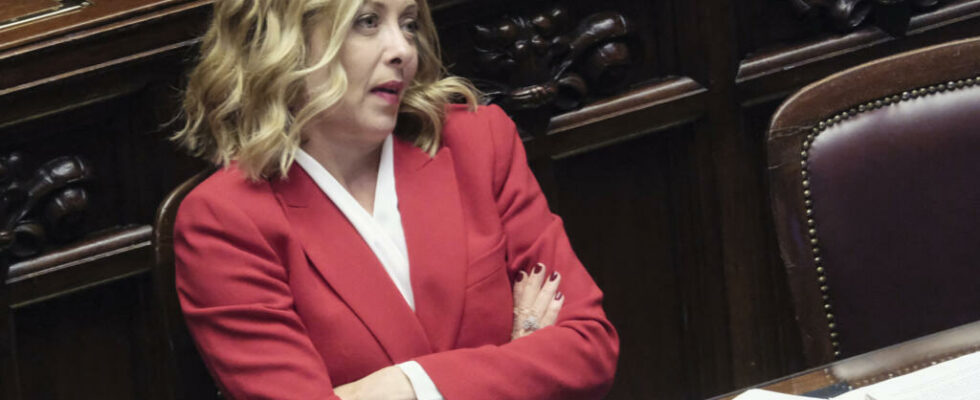On the evening of Tuesday, October 15, the Italian government adopted its draft budget for 2025 in the Council of Ministers, focused on tax cuts for low-income families, and financed in part by a contribution from banks and insurance companies.
2 mins
“ 3.5 billion euros from banks and insurance companies will be allocated to health care and the most vulnerable people in order to ensure better services that meet everyone’s needs as closely as possible. », announced on X the head of government Giorgia Meloni. “ As we promised, there will be no new taxes for citizens “, she assured.
The draft budget provides around 30 billion euros in support measures for employees and retirees, indicates the Ministry of the Economy in a press release, without specifying the nature of the contribution from the financial sector.
The Italian government plans to detail its measures at a press conference late Wednesday morning. After strong tensions within the right and far-right coalition over the taxation of banks, the League (far-right party) of Matteo Salvini like Antonio Tajani’s Forza Italia (conservative party) declared victory.
No new taxes, promises the government
Welcoming the government’s intervention on the banks, Deputy Prime Minister Matteo Salvini declared that “ taking into account the 40 billion profits for the year 2023 alone “, he expected ” important contributions to support the country and, above all, the national health system. »
“ There will be no new taxes. The banks’ contribution is the result of an agreement, as we always wanted, and not an imposition from above “, argued the other vice-head of government, Antonio Tajani. “ The line of common sense which does not frighten the markets and defends freedom wins “, he assured on X.
Lower social charges and mergers of two tax brackets
The ruling coalition wanted to avoid at all costs a repeat of the 40% tax on “ superprofits » banks, announced by the Meloni government in August 2023, which triggered a panic on the Milan Stock Exchange.
Faced with the stock market debacle, the head of government backed down and significantly watered down her project. Rome had thus given banks the option of choosing between paying the levy or increasing their reserves by an amount equivalent to two and a half times the tax. In the end, this tax brought nothing to the Italian Treasury, but helped to strengthen the banks’ capital.
In her budget, Giorgia Meloni renewed a reduction in social charges for annual salaries of up to 35,000 euros, already in force on a temporary basis. Another flagship measure, the government has perpetuated the merger of the first two tax brackets to provide annual income up to 28,000 euros with a reduced rate of 23% instead of 25%.
